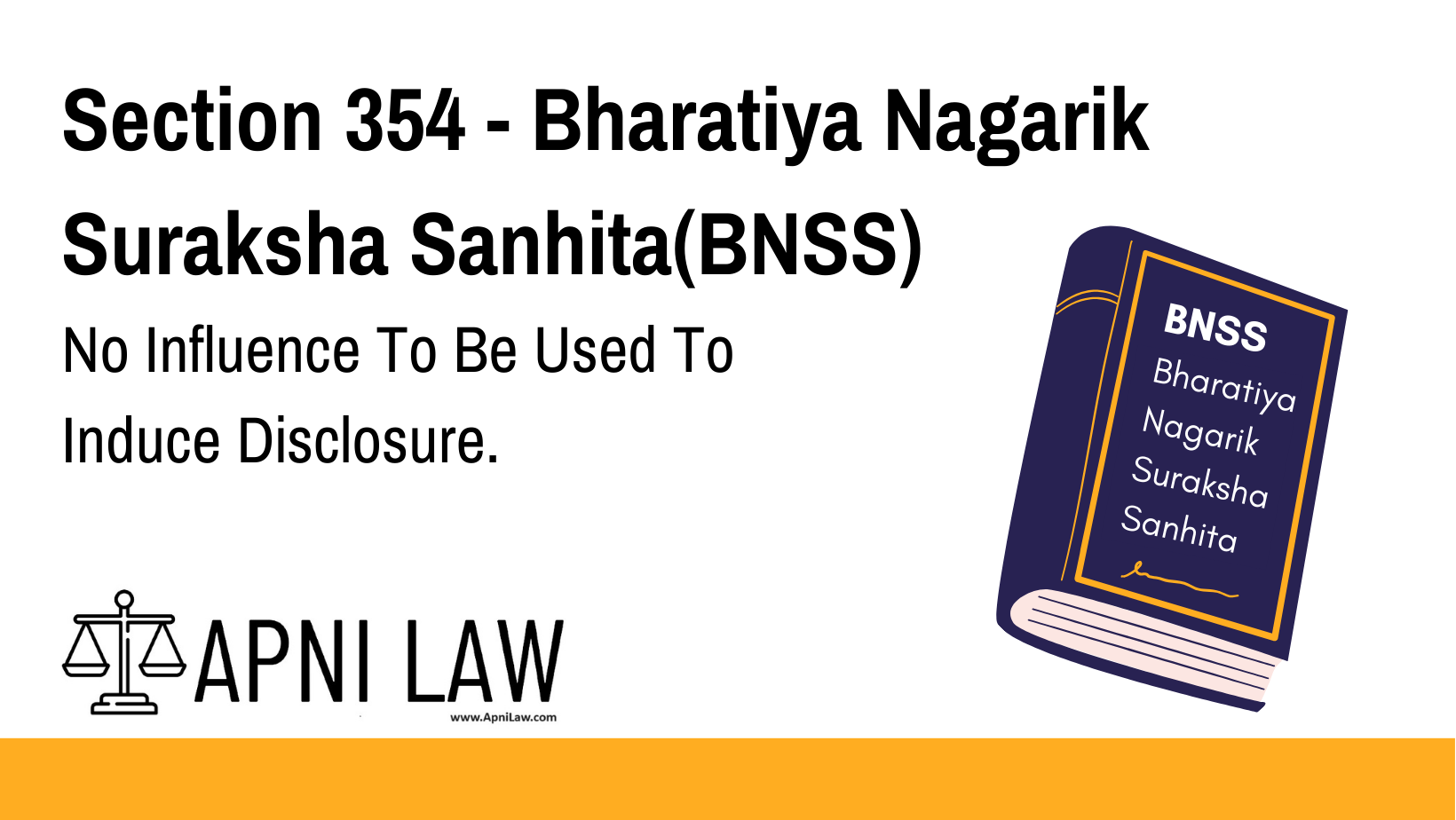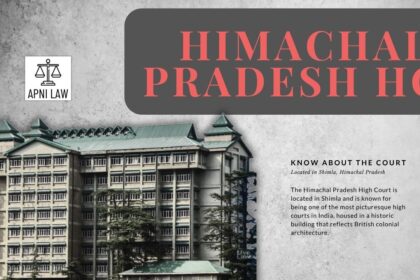Code: Section 354 BNSS
No influence to be used to induce disclosure.—Except as provided in sections 343 and 344, no
influence, by means of any promise or threat or otherwise, shall be used to an accused person to induce him to disclose or withhold any matter within his knowledge.
Explanation of Section 354 BNSS
Purpose of This Section
This section aims to protect accused persons from coercion during investigations or trials. It ensures that any information provided by the accused is voluntary and not obtained through threats or inducements.
Key Provisions
- Prohibition on Inducing Accused Persons
- No one, including police officers, investigators, or private individuals, can force an accused to disclose or withhold information.
- This includes using threats, promises of leniency, or any other influence.
- Exceptions – Sections 343 & 344 BNSS
- The only exceptions to this rule are found in Sections 343 and 344 BNSS, which likely deal with legal procedures for obtaining statements.
- Ensures Voluntariness of Confessions
- Any confession or disclosure made under coercion, threat, or promise of advantage is inadmissible in court under the doctrine of free will.
Illustration
Example 1: Illegal Police Pressure
A suspect in a fraud case is threatened by police officers that he will be denied bail unless he confesses. This violates Section 354 BNSS, and any confession made under such pressure would be inadmissible in court.
Example 2: Promise of Leniency in Exchange for a Statement
A government official accused of corruption is told, “If you admit guilt, we will ensure a lighter sentence.” This inducement violates Section 354 BNSS, and any statement given under such a promise cannot be used as evidence.
Common Questions and Answers on Section 354 BNSS
1. Does this mean an accused person can refuse to answer questions?
Yes, unless required under Sections 343 and 344 BNSS. An accused person cannot be forced to disclose or withhold information.
2. Can the police use psychological pressure without direct threats?
No. Even subtle forms of coercion, like false promises, implied threats, or undue influence, violate Section 354 BNSS.
3. What happens if evidence is obtained through coercion?
- Any confession or disclosure made under coercion is generally inadmissible in court.
- If coercion is proven, it may lead to disciplinary action against the responsible officials.
Conclusion
Section 354 BNSS protects the rights of accused persons by ensuring that any disclosure they make is free from coercion or inducement. It reinforces the principle that justice should be fair and voluntary, not forced.








